|

This year our Poster Session will be broken up into three different Zoom Rooms, each containing 4 presentations. Below you will find each presentation listed with its abstract, learning objectives and presenter information.
Please use the menu below to navigate the presentations below.




STAND-UP COMEDY AND LIFE REVIEW
The Laugh Review protocol, which combines stand-up comedy and life review, was piloted in Spring 2021 with 6 older adults living in a retirement community in NYC. Qualitative findings point to the therapeutic benefits of using humor and performance to process and talk about life experiences.
Learning Objectives
-
Attendees will come away thinking more deeply about how ageism plays out in our culture and the ways in which fields like narrative gerontology and drama therapy can be used to reshape our cultural attitudes towards aging
-
Participants will learn about the Laugh Review protocol and its outcomes
-
Participants will come away considering how stand-up comedy performance may be integrated into drama therapy practice.
Presenter
Mary Clohan, MA, is a teacher, performer, writer and drama therapist based in Brooklyn, New York. Her clinical work has included working with adults in inpatient and outpatient psychiatry at King's County Hospital, working with individuals and groups in the Penn South retirement community, co-leading drama therapy groups for individuals in the AHRC day program, and pioneering a drama therapy program for bereaved parents and siblings through COPE. Mary is also a certified end of life doula and is particularly interested in incorporating drama therapy into end of life care and bereavement work.
Filmmaking as Therapy: Within Black Lives Matter: How can filmmaking be used in the context of drama therapy to heal and empower Black individuals and communities
Filmmaking as therapy is the intentional use of the filmmaking processes to achieve therapeutic goals. Filmmaking as therapy is a practice that includes a multiple-step process that requires video technology, a director/therapist, production structure, and strategy. This approach can provide the context for participants to set goals, tell their story, create storyboards and timelines for continuity, organize one’s narrative, witness themselves via video playback, explore topics within their stories, incorporate and engage focus groups, and research mental illnesses, behavior, and culture in relation to participant’s experience. Every phase of the experience offers opportunity for personal and artistic growth. The artistic reference pertains to one's skill(s) and mastery of skill(s). One of the prime intentions in this research is to nurture Black wellness and teach Black communities healthy ways to thread forward.
Learning Objectives
-
The audience will explore opportunities to provide cultures and generations with an alternative form of therapy, storytelling, and story playback for more in-depth assessment, catharsis, and healing.
-
The audience will explore assisting clients in building tangible installations of hope through film, expand the therapeutic impact of communal healing through group therapy and empower more individuals to acknowledge their mental illness, trauma and to seek support.
-
The presentation will contribute to the field's ongoing research and effort to address Diversity, Equity and Inclusion by providing clinicians an alternative method to support wellness across marginalized and underrepresented individuals and communities.
Presenter
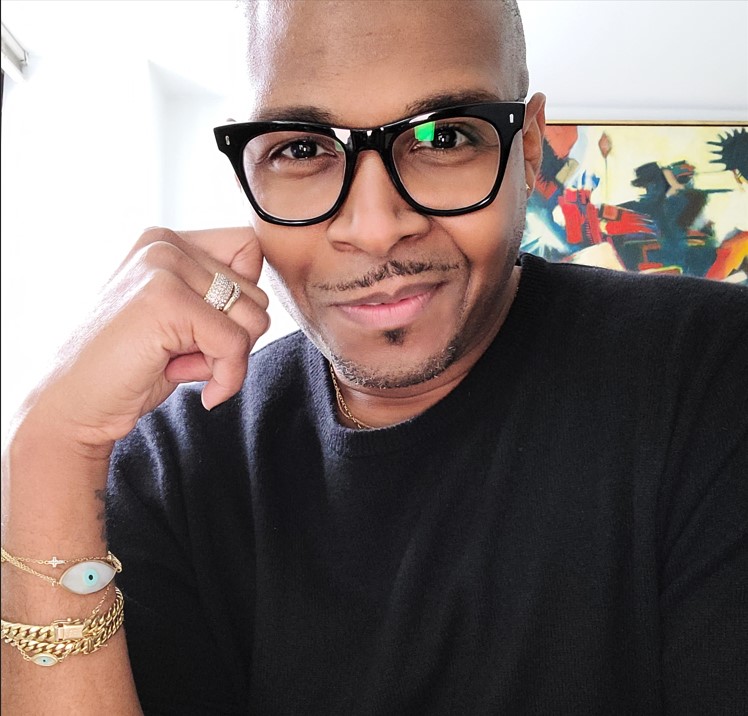 Aunrée J. Houston Owner and Founder of Aunrée Jac lifestyle brand; former HBO vice president; NYU certified life coach; filmmaker and content curator.Aunrée ?J. Houston is the founder and proprietor of AUNRÉE JAC INC, a lifestyle brand that utilizes creativity and psychology as tools for leadership, wellness, and storytelling. In this role, he draws on more than 15 years managing marketing operations for HBO, directing theatre and curating artistic projects, and more than 10 years as a life and career coach. Aunrée J. Houston Owner and Founder of Aunrée Jac lifestyle brand; former HBO vice president; NYU certified life coach; filmmaker and content curator.Aunrée ?J. Houston is the founder and proprietor of AUNRÉE JAC INC, a lifestyle brand that utilizes creativity and psychology as tools for leadership, wellness, and storytelling. In this role, he draws on more than 15 years managing marketing operations for HBO, directing theatre and curating artistic projects, and more than 10 years as a life and career coach.
Improvising with the Autonomic Nervous System
Socialtheatre.org (Social Theatre TM) utilizes an educational approach to dramatherapy, in which concepts are initially taught. Then, role theory is invoked later after initial concepts and skills are learned first. When utilizing Improvising with the Autonomic Nervous System, the goal first is to learn about the Autonomic Nervous System, then through role theory, parts are practiced in order to understand the interactions within the brain as well as how skills can be utilized to maintain balance within our neurology.
Learning Objectives
-
Audience members will observe that parts of the brain can be characterized.
-
Audience members will observe that processes of the brain can be improvised.
-
Audience members will be able to make connections with Role Theory/Methods.
Presenter
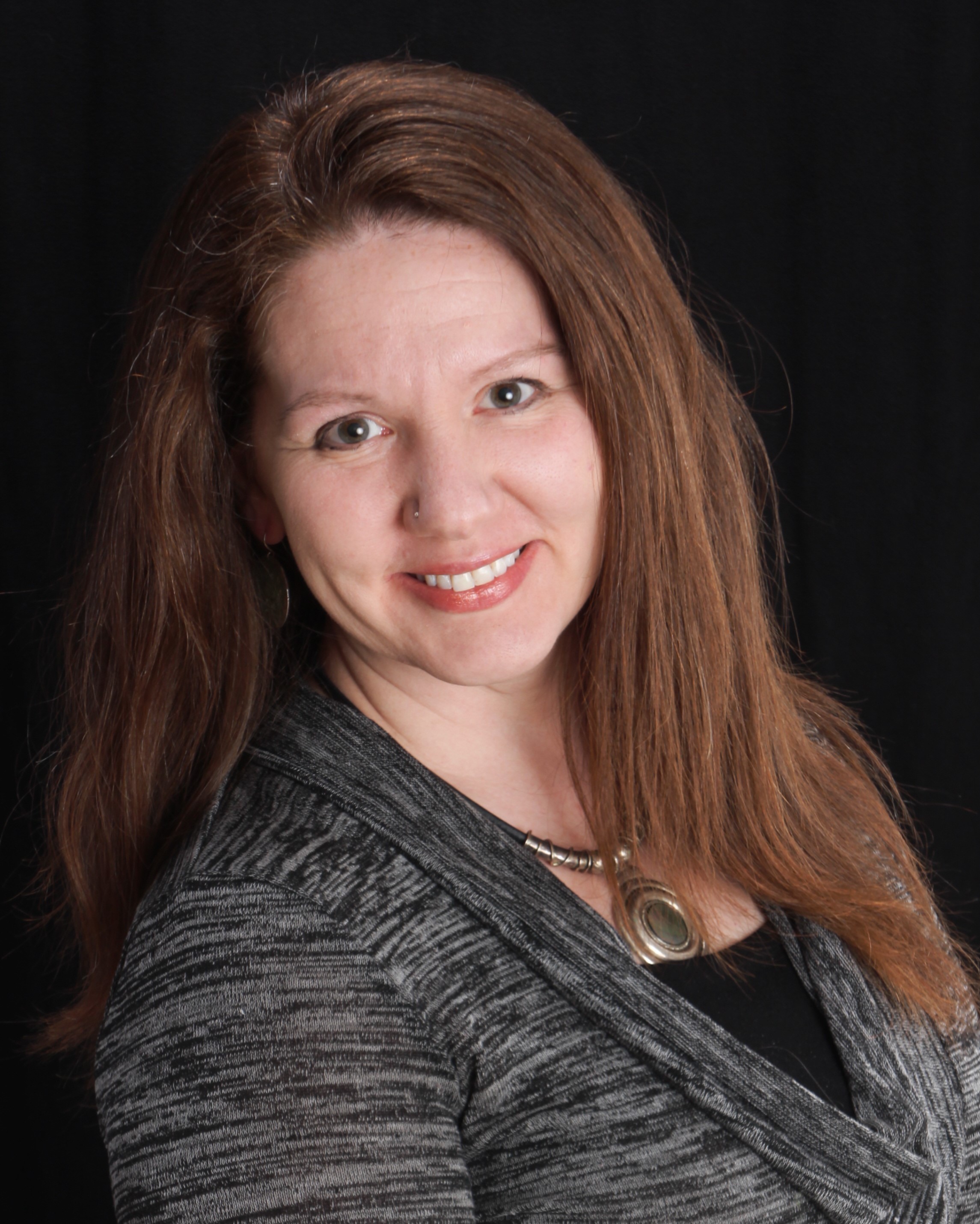 Shawn Amador, LCSW, MSW, as the author of "Teaching Social Skills through Sketch Comedy and Improv Games", Shawn is a full time therapist and by trade is a school social worker of 17 years. Shawn began her journey towards dramatherapy after starting a program that began with her passion: clowning. However, the clown program morphed into a sketch comedy program, SocialTheatre.org which she was able to carry over into private practice. The purpose of Social Theatre TM is to teach social emotional skills through improv games and humorous role plays. In Shawn's multitude of experiences, she has worked in the areas of domestic violence, child welfare, and in education. In Education, I have served children of many populations, including children with learning disabilities, across the spectrum autism disorders, communication disorders, emotional and behavioral difficulties, and multi-needs. At present, Shawn's practice is geared towards neurodiversities such as Autism Spectrum Disorders, ADHD, learning and communication differences, and anxiety. With two master's degrees, a Masters of Social Work and MA in Educational Leadership education, Shawn also has her License in Clinical Social Work. Shawn Amador, LCSW, MSW, as the author of "Teaching Social Skills through Sketch Comedy and Improv Games", Shawn is a full time therapist and by trade is a school social worker of 17 years. Shawn began her journey towards dramatherapy after starting a program that began with her passion: clowning. However, the clown program morphed into a sketch comedy program, SocialTheatre.org which she was able to carry over into private practice. The purpose of Social Theatre TM is to teach social emotional skills through improv games and humorous role plays. In Shawn's multitude of experiences, she has worked in the areas of domestic violence, child welfare, and in education. In Education, I have served children of many populations, including children with learning disabilities, across the spectrum autism disorders, communication disorders, emotional and behavioral difficulties, and multi-needs. At present, Shawn's practice is geared towards neurodiversities such as Autism Spectrum Disorders, ADHD, learning and communication differences, and anxiety. With two master's degrees, a Masters of Social Work and MA in Educational Leadership education, Shawn also has her License in Clinical Social Work.
Along her professional journey, she has collected many different therapy tools including Social Thinking®, Mindfulness Training, Assertiveness Training, Dramatherapy Role Theory/Methods, Neuropsychology and Cognitive Behavioral Therapy. Shawn Amador has presented at the Social Thinking Providers conference 2016 and at the New York Learning and the Brain Conference 2018 on her unique approach to teaching Social Emotional Concepts.
Virtual CoActive Therapeutic Theatre Model & Schizophrenia
Emily Faith, Francesca Jannello and Dr. Laura Wood share preliminary findings from a 12 week, virtual pilot study for the CoActive Therapeutic Theatre Model with patients with a schizophrenia diagnosis. This pilot is the precursor to the 18 month randomized study, in partnership with The National Endowment for the Arts and the UMass Mind Program.
Learning Objectives
-
Participants will become familiar with a manualized therapeutic theatre model within the virtual framework.
-
They will leave with best practices for online group drama therapy with the schizophrenia population.
-
Participants will learn about current drama therapy research.
Presenters
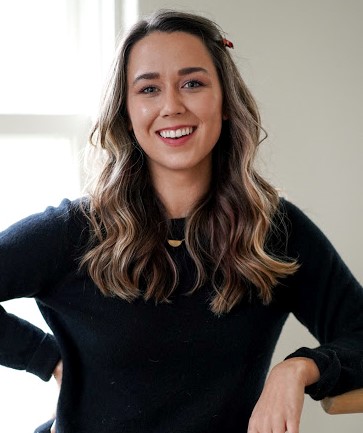
Emily Faith, MS, is a recent graduate of Lesley University with her masters in Clinical Mental Health Counseling and Drama Therapy. She has collaborated with Recovery Through Performance, assistant directing 'Lost and Found: A Message of Hope' with persons with schizophrenia. Emily has experience as a professional healthcare clown and currently serves as drama therapist at Cook Children's Hospital in Fort Worth, Texas.
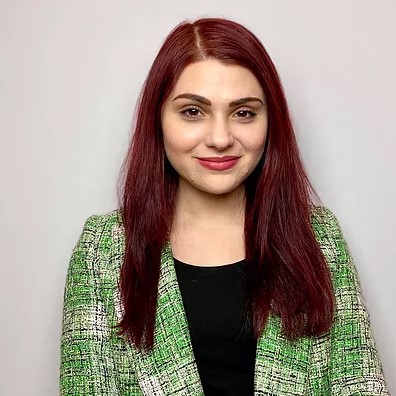
Francesca Jannello, M.S, is a Drama Therapist who holds a MS in Clinical Mental Health Counseling. She frequently collaborates with Recovery Through Performance, assistant directing ‘The Gift’ with persons with Aphasia and co-directing 'Lost and Found: A Message of Hope' with persons with schizophrenia. She has spent the last two years providing trauma informed care in private practice and college clinic settings to a diverse group of humans. Prior to becoming a clinician, Francesca attended CAP21 Musical Theatre Conservatory and worked in Child Life at Mount Sinai Kravis Children's Hospital. She specializes in working with the perinatal population and couples.
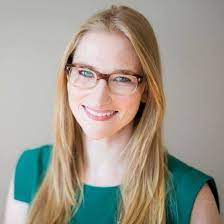
Laura Wood, PhD, LMHC, RDT-BCT, Dr. Laura L. Wood is a Registered Drama Therapist, Board Certified Trainer, Licensed Clinical Mental Health Counselor, Licensed Creative Arts Therapist, and a Certified Child Life Specialist. Dr. Wood is the current President of the North American Drama Therapy Association (NADTA). Previously, Dr. Wood served as an Assistant Professor and the Clinical Coordinator at Molloy College, where she spent four years collaborating and launching an accredited program in Clinical Mental Health Counseling and supported the start of a community wellness clinic. Prior to being a full-time professor, Dr. Wood was the Lead Therapist at an eating disorder and trauma treatment center in the Midwest where she facilitated individual, group, and family therapy. She also spent time working in pediatric hospitals with critically and seriously ill children and in assisted living with older adults. Her focus and research areas include the treatment of trauma and dissociation, eating disorders, attachment, recovery, and grief/loss.
More specifically, Dr. Wood is interested in how therapeutic theater can support individuals in various forms of recovery. She created the CoActive Therapeutic Theater (CoATT) Model with her colleague Dave Mowers. CoATT is the first manualized model of therapeutic theater and Dr. Wood is engaged in on-going research and collaboration with various recovery communities including persons with eating disorders, substance use, and aphasia. Dr. Wood presents, publishes, supervises, and consults nationally and internationally. She sees clients in private practice and facilitates intensive healing retreats using drama therapy.
Return to top

BART - The Black American Role Taxonomy, a culturally responsive expansion to role theory & method
This work investigates the racialized stereotypes and roles of Black American people located in the therapeutic spaces. It navigates ways drama therapists can utilize these stereotypes to create and expand upon Robert Landy’s role method and role theory to empower Black Americans to claim and reclaim identities appropriated by privileged others.
Learning Objectives
-
This research will highlight the NADTA Guidelines for Cultural Response/Ability in Training, Research, Practice, Supervision, Advocacy & Organizational Change which encourages drama therapists to learn and engage their clients’ cultural beliefs, values and world views.
-
Participants will explore how to expand and adapt on the foundational drama therapy intervention of role theory and method in order to center and empower the experiences of Black Americans and other marginalized identity locations.
-
Participants will gather a deeper understanding that conversations about race are integral to effective and ethical practice.
Presenter
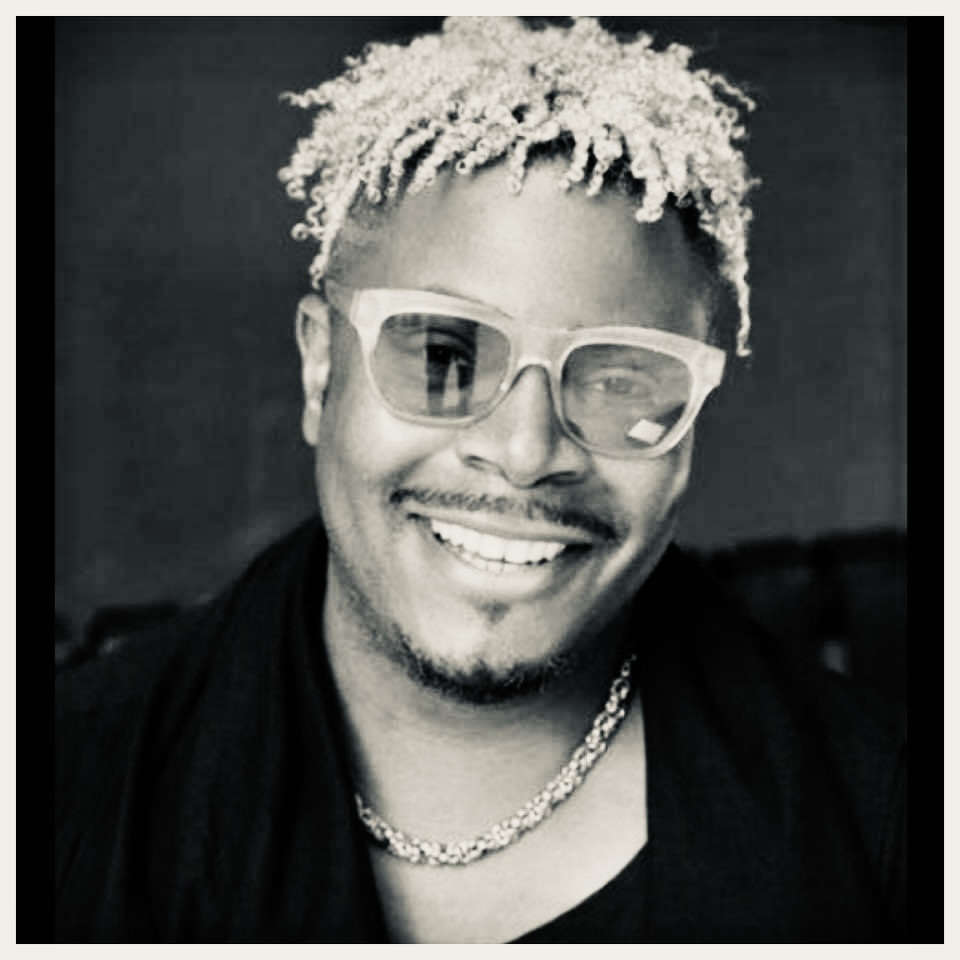
Adam D-F. Stevens (he|they), MA, RDT, is a joyous Black, gender creative individual. They are a Registered Drama Therapist (RDT) who works at the Cooke School & Institute guiding young people with developmental differences. They are the Artistic Director of the Collideoscope Repertory Theatre Company (CRTC) in the NYU Program in Drama Therapy. They serve as an adjunct faculty member in the Drama Therapy Programs at Antioch University in Seattle and Marymount Manhattan College in NYC. They sit on the Board of Directors for the North American Drama Therapy Association (NADTA) as Chair of the Cultural Humility, Equity, and Diversity Committee. Through his clinical artistry, Adam looks to center the voices and experiences of marginalized folx.
Drama Therapy in Early Childhood Mental Health Consultation: An Opportunity to Increase Equitable Access to Creative Arts Mental Health Services
Early childhood mental health consultation (ECMHC) provides free mental health support to those working with children. This is an area in which drama therapy is underrepresented. This explores my work utilizing drama therapy in this setting, and how it has increased access to mental health services for at-risk populations.
Learning Objectives
-
Participants will be able to describe how drama therapy and early childhood mental health consultation can be utilized together.
-
Participants will be able to summarize how a systems approach in drama therapy can aid treatment in early childhood(0-5).
-
Participants will be able to describe at least two drama therapy techniques to support combating burnout among early childhood educators
Presenter
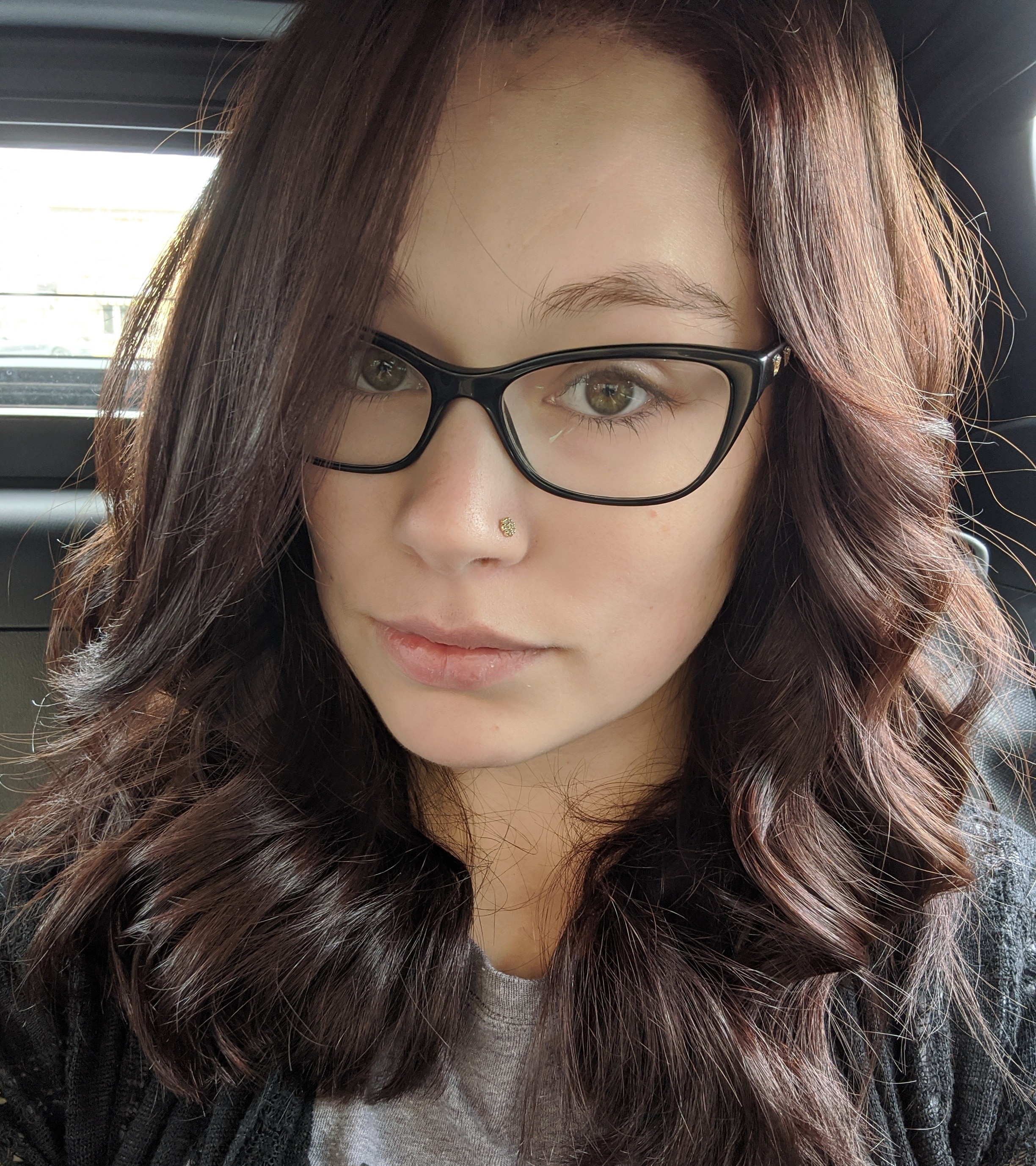
Tara Metcalf, RDT, Association Marriage and Family Therapist, graduated from CIIS in 2019. Since then, they have been working primarily in early childhood education, increasing access to creative arts therapy for low-income teachers and families. They utilize drama therapy within a systems consultation approach in order to more successfully, equitably, and accessibly combat burnout among educators, caregivers, and health care professionals. They have begun research into burnout as well as ethics issues in drama therapeutic practice and training.
Improv Performance as an Assessment Tool
Five theatrical functions necessary both for good improvising and everyday psychosocial functioning were previously identified. Analyzing client improvs revealed how performance deficiencies correspond to ones in their psychosocial functioning. Recent work on assessment via the presenter’s Dramaturgic Model extends this correspondence to encompass cultural and situational factors previously not considered.
Learning Objectives
-
Attendees will better understand how clients’ improvisational performances may be used to assess their life skills and psychosocial functioning.
-
Attendees will be able to identify and describe the five role functions of the Dramaturgic Model.
-
Attendees will better understand how cultural and situational factors influence psychological assessment.
Presenter
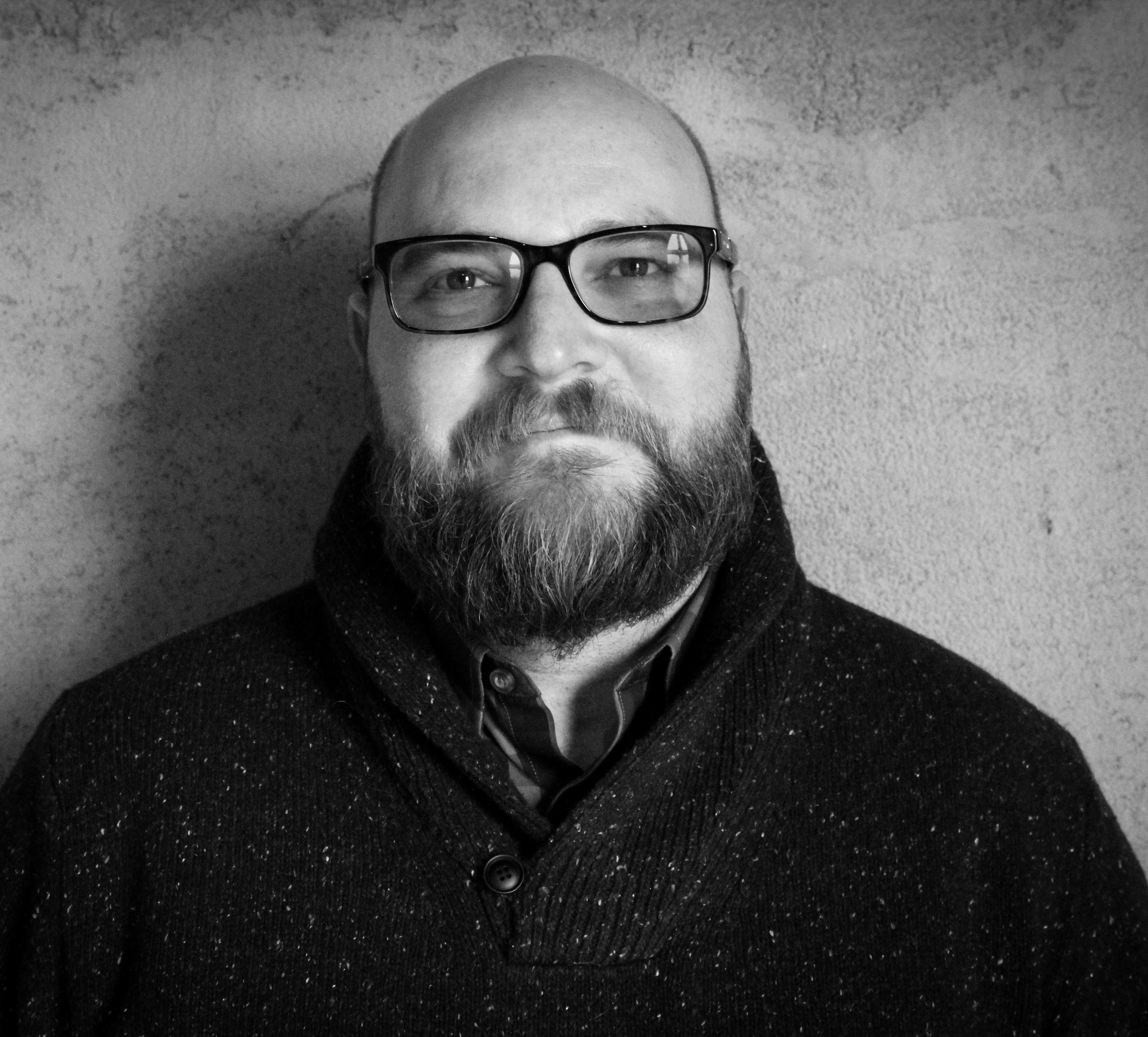 Mark Beauregard (he/him/his), RDT-BCT, LCAT, has a full-time private practice in New York city where he sees children, adolescents and adults for individual and group therapy for the past 18 years. He is an adjunct faculty member of New York University's Drama Therapy Program where he teaches the course Improv and Mental Health with specific interest in improvisation’s relational and mindful dynamics as agents of change for anxiety and trauma. Mark received post graduate training and certification in gender and sexuality affirming psychotherapy at the Institute for Contemporary Psychotherapy, as well as arts and trauma treatment from the Kint Institute. Mark has published and presented extensively on incorporating the arts into psychotherapy treatment, and more specifically, its application for serving gender and sexually diverse clients and families. Mark Beauregard (he/him/his), RDT-BCT, LCAT, has a full-time private practice in New York city where he sees children, adolescents and adults for individual and group therapy for the past 18 years. He is an adjunct faculty member of New York University's Drama Therapy Program where he teaches the course Improv and Mental Health with specific interest in improvisation’s relational and mindful dynamics as agents of change for anxiety and trauma. Mark received post graduate training and certification in gender and sexuality affirming psychotherapy at the Institute for Contemporary Psychotherapy, as well as arts and trauma treatment from the Kint Institute. Mark has published and presented extensively on incorporating the arts into psychotherapy treatment, and more specifically, its application for serving gender and sexually diverse clients and families.
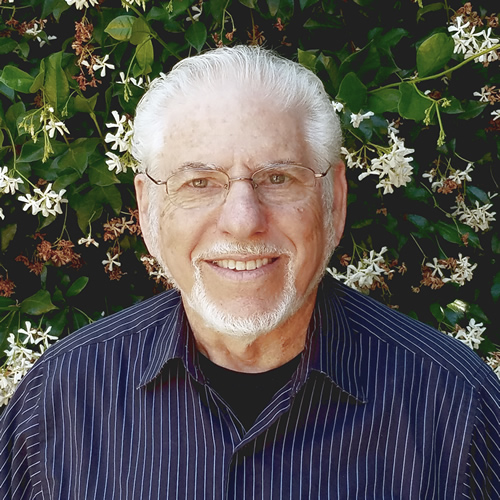
Daniel J. Wiener, Ph.D., RDT/BCT, is licensed psychologist who taught Marriage and Family Therapy for 23 years as a Professor at Central CT State U. Founded in 1984 his approach, Rehearsals for Growth, uses improvisational theatre games to work with relationships. Dan has presented over 260 professional workshops in 10 countries, training over 1200 therapists and is an Author/Editor of 5 books (starting with Rehearsals for Growth: Improvisation for Psychotherapists in 1994), as well as 50 published chapters and articles. He is the recipient of Psychodrama’s Zerka T. Moreno Award (ASGPP), and both Drama Therapy’s Gertrude Schattner Award and a Research Award (NADTA).,
A Taxonomy of Considerations for Therapeutic Theatre
A blueprint of considerations while constructing a therapeutic theatre performance/s, aimed at guiding creative or expressive arts therapists, mental health practitioners and facilitators across the world to independently create, connect, collaborate and perform conversations rooted in mental healthcare within their competency, in a culturally sensitive, inclusive and ethical manner.
Learning Objectives
-
Therapeutic agents present in the therapeutic theatre process “Theatre has been accepted as a therapeutic agent since its first appearance.” (Furman, 1988)Underlining and summarizing the presence of different variables such as narrative, process, dramatization, ethics, metaphors, performance styles, etc, offers mental health professionals indicators to premise creative therapeutic ventures for different populations across ages, abilities and identities, within their competency. Participants will be able to identify the therapeutic elements involved.
-
Recognizing the significance of being a trauma-informed, intersectional and culturally sensitive taxonomy. “The core experiences of psychological trauma are disempowerment and disconnection from others. Recovery, therefore, is based upon the empowerment of the survivor and the creation of new connections. Recovery can take place only within the context of relationships; it cannot occur in isolation” (Hermann, 1992)The research hopes to support the future prognosis of trauma-informed care and rehabilitation in diverse cultural settings like India via therapeutic theatre in the praxis of drama therapy. Therapists constantly encounter clients that endorse enmeshed boundaries between somatic(age, gender), cognitive, social, aesthetic, moral, emotional roles that they play and intersection themes of vulnerability and systemic oppression, performance serves as an effective tool to (re)build boundaries that enable a sense of empowerment, connection, safety and resilience in individuals and communities. “In her renewed connections with other people, the survivor re-creates the psychological faculties that were damaged or deformed by the traumatic experience. These faculties include the basic capacity for trust, autonomy, initiative, competence, identity and intimacy. Just as these capabilities are originally formed in relationships with other people, they must be reformed in such relationships.” (Hermann, 1992)
-
“Creative adaptability” to different creative arts mediums and modalities. The session will offer a systematic comprehensive checklist of considerations when creative or expressive arts therapists across the world try to work with people from varied cultural backgrounds, through therapeutic theatre. It factors in different mediums (both online and offline) that the taxonomy of considerations can creatively adapt to as per the skill of the facilitator, participant’s needs and availability of resources. Especially, post pandemic, considering the creative efficacy and adaptability of theory and practice is an important consideration to place.
Presenter

Anupriya Banerjee, Founder and Creative Director of Doctor Drama and Assistant Course Coordinator for the P.G. Diploma Program in Expressive Arts Therapy at St. Xavier’s (Autonomous) College, Mumbai, Ms. Anupriya M. Banerjee has explored the landscape of theatre, dance, films, media, and therapy. She is the first Indian to graduate from the Master’s Program in Drama Therapy, New York University (2016). She also holds a Diploma in Journalism from NDTV Media Institute (2014) and Performing Arts. She employs techniques of performing and expressive arts with individuals in recovery across ages and abilities. In New York, she worked closely with treatment for differential diagnosis at Lenox Hill Hospital and Kings County Hospital. She was appointed as the Creative Arts Therapist In-charge of the acute in-patient psychiatric ward at Brookdale Hospital. Post her return to India, Miss Banerjee started an online portal called Doctor Drama (2017), aimed at making self-care via dramatherapy accessible and comprehensible for people across the world.
The portal offers DIY self-care videos, psycho-educational short films, therapeutic theatre projects and documentaries (directed by Ms.Banerjee as well) relating to the expressive arts therapy movement in India. Along with offering private drama therapy tele-health sessions, she has facilitated multiple wellness workshops for spaces like Public Health Office (Maharashtra State Board), Manipal University, Tata Institute of Social Sciences, International Autism Conference, Hindustan Petroleum, Swiggy, Youth for Mental Health and Swami Vivekananda Education Society. Anupriya was invited by Tedx ICT (Institute of Chemical Technology),Mumbai to speak on Drama therapy and self-care (2018) and was nominated as a “The Chetna Hero” for her work as Doctor Drama. She identifies as a trauma-informed, intersectional feminist therapist and mental health advocate. She is a core founding member of Drama-Therapy India, and represents the same at the World Alliance of Dramatherapy.
Return to top

The H.E.R.O. Unmasking Workshop: A Virtual Drama Therapy Protocol
H.E.R.O. is a virtual drama therapy protocol designed to support healthcare professionals in processing their experiences of working during COVID-19. This six step protocol is grounded in Role Theory and utilizes the core processes of drama therapy. Through performance, witnesses will learn how to implement the intervention.
Learning Objectives
-
Participants will gain an understanding of how to implement the 6 step virtual drama therapy intervention for use in their own work of providing mental health care.
-
Participants will be able to name a minimum of 2 benefits of implementing virtual drama therapy interventions.
-
Participants will be able to identify a minimum of 2 ways that COVID-19 has impacted providing drama therapy interventions and mental health care in the clinical field.
Presenters
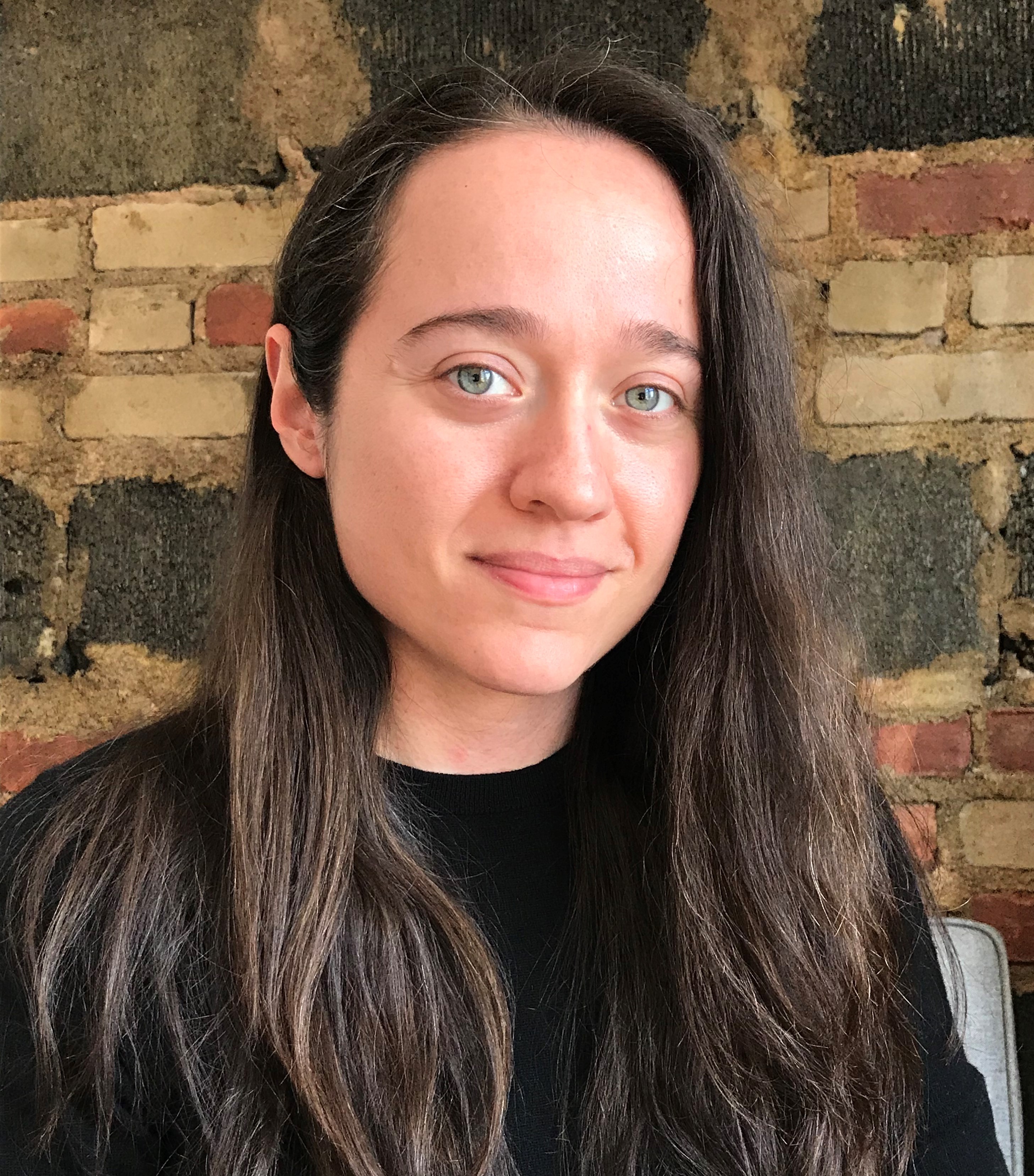
Elena Offerman, MA, (she/her), is a recent graduate of the Drama Therapy Master’s Program at NYU. She is the co-creator and co-facilitator of the H.E.R.O. Unmasking workshop, a virtual drama therapy series for healthcare workers on the frontlines of the COVID-19 pandemic. She was a clinical intern for Behavioral Health Services at NYC Health + Hospitals/Kings County, a clinical counseling intern for Hetrick-Martin Institute, and the drama therapy intern for the NYU Steinhardt Speech-Language-Hearing Clinic. She is the Co-Chair of the NADTA Student Committee, and a 200HR RYT.
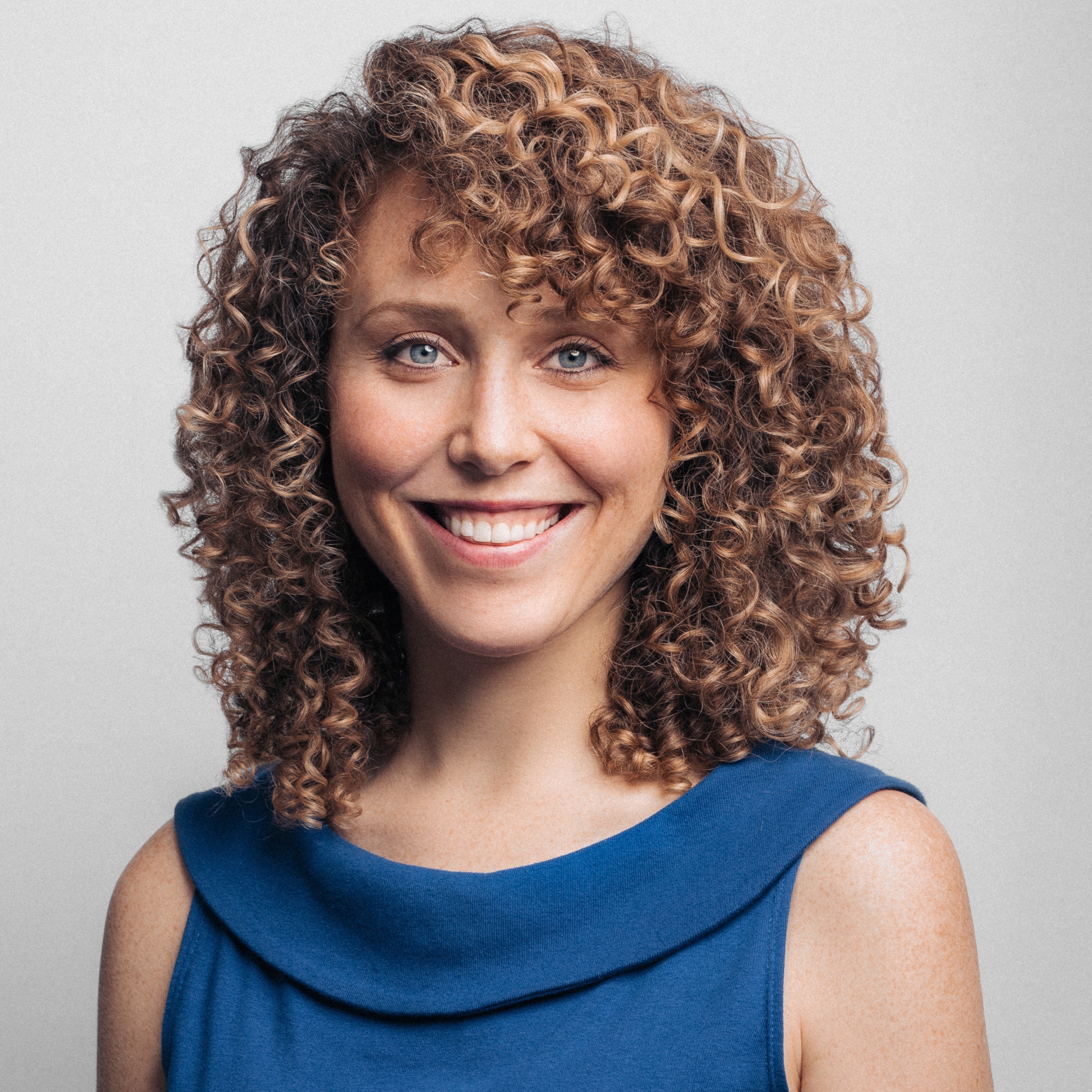
Amanda Rothman, MA, (she/her), is a recent graduate of the Drama Therapy Master’s Program at NYU. She is the co-creator and co-facilitator of the H.E.R.O. Unmasking Workshop, a virtual drama therapy series for healthcare workers on the frontlines of the COVID-19 pandemic. She was a clinical intern for Behavioral Health Services at NYC Health + Hospitals/Kings County as well as The Center for Community Counseling and Wellbeing. Amanda is a member of the Research Measurements Updating Sub-committee of the NADTA and is the Co-Chair of the NADTA Student Committee.
Queer Autobiographical Performance: Putting Queer Theory and Performance Studies in Conversation with Drama Therapy
Drawing from lived experience as a theatre artist, Performance Studies scholar, and queer non-binary survivor of trauma and domestic violence, I will explore how Drama Therapy as a field can benefit from staying connected to interdisciplinary research as the field continues to grow and evolve.
Learning Objectives
-
Participants will be introduced to the concepts of queer utopian performance, queer time, and ephemera in performance, to increase competency with Queer Theory and Performance Studies, and better understand the value of interdisciplinary research in drama therapy.
-
Participants will be walked through my process of creating five different autobiographical performance narratives related to a traumatic event over the span of a decade, to illustrate how on-going connection to theatre and drama can create deeper levels of healing than any singular autobiographical performance is able to achieve on its own.
-
Participants will better understand the value of autobiographical performance genres within the LGBTQIA2S+ community specifically, to increase competence in working with marginalized populations who experience minority stress and trauma related to structural oppression.
Presenter
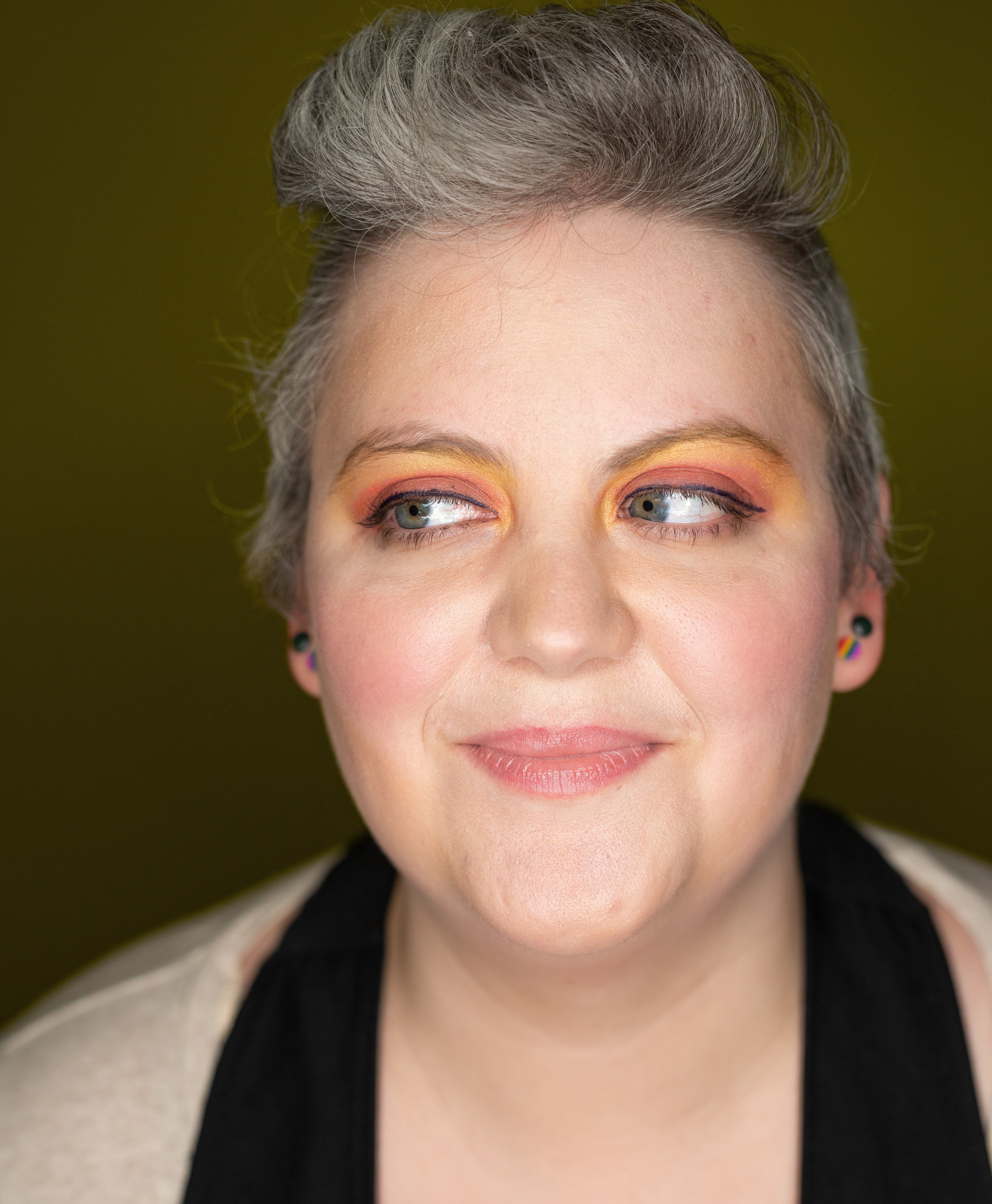
Dana Sayre, MA, RDT, has a MA in Performance Studies and is a Registered Drama Therapist through the North American Drama Therapy Association (NADTA). They are a member of the Cultural Humility, Equity, and Diversity Committee of the NADTA and the Disability Justice Working Group. Dana is the creator and a member of the Queer Drama Therapy Working Group. Dana has experience working with LGBTQIA2S+, Disability/Neurodivergence, Domestic Violence, and Acute Mental Illness (including Substance Abuse dual diagnosis). Dana has a chapter pending publishing in Trauma-Informed Drama Therapy, 2nd ed.
Until You Name Them, Then You Cannot Tame Them: Using Psychodrama To Treat Auditory Hallucinations
Moreno, the father of drama therapy, first used drama as an intervention in individual work; this is known as a monodrama, where the protagonist plays all the roles of the drama without any auxiliaries. The author will describe how monodrama can help manage auditory hallucinations in individual therapy.
Learning Objectives
-
Participants will become familiar with monodrama as a treatment modality to treat individuals with auditory hallucinations.
-
Participants will learn about auditory hallucinations and trauma and how they intertwine. As well as the influence an individual cultural might have on auditory hallucinations.
-
Participants will become familiar with AVHRS, and be able to implement it in their clinical practice.
Presenter
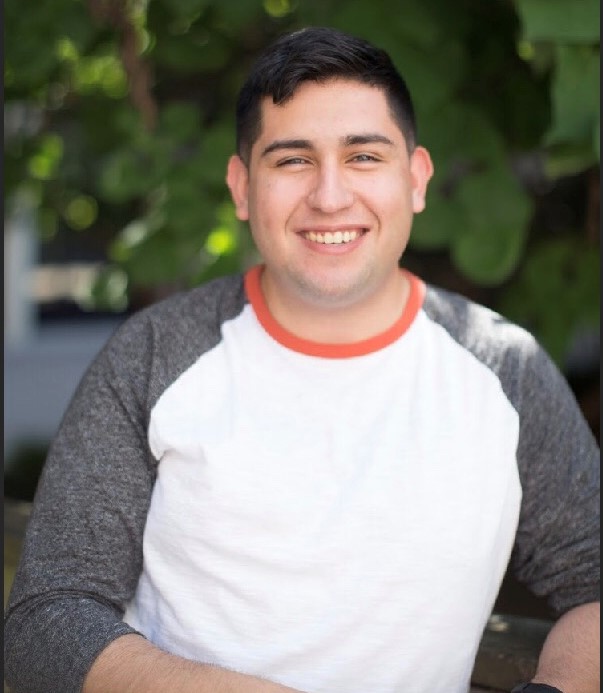
German Sanchez, LMSW, is a licensed master social worker in NY state. He is a graduate of the Catholic University of America National School of Social Services, as well as the New York University Steinhardt drama therapy program. German currently works At Sunny Downstate Medical center working with the HIV population providing case management and short-term solution-focused therapy. German also works at the Park Slope Center for Mental Health where he works with children, adolescents, adults, older adults, families, and couples. German is passionate about providing person center collaborative care with clients. German strongly believes that some of the best work that is done in session is when the client and therapist come together to co-create those moments.
ENACT Method for Healing Trauma
The ENACT Method has been used across thousands of schools, youth centers, prisons and hospitals in America and abroad. The work demonstrates that trauma intersects with culture, history, race, gender and language. This workshop will use case- histories and Q and A to explain how the ENACT method addresses and works with various causes and expressions of trauma .
Learning Objectives
-
Participants will be able to describe the various forms of trauma including systematic and racial trauma.
-
Participants will understand the neurobiology of trauma.
-
Participants will understand how the ENACT Method addresses various forms of trauma.
Presenter
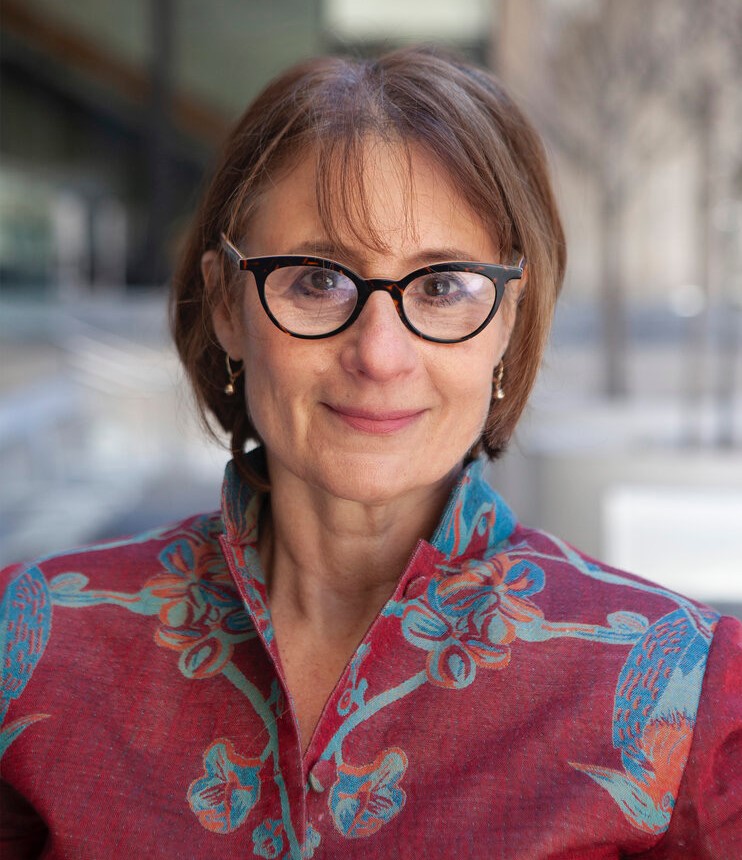
Diana Feldman, RDT-BCT, LCAT, is the developer of the ENACT Method and past founder and president of ENACT Inc. for 30 years. She is currently the President of Dramasol LLC , a consulting company that trains educators, health workers, corporations and artists. Feldman is currently completing her book on Trauma and adolescents.
Return to top
|